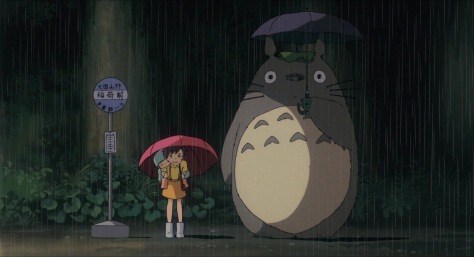By Dennis Hartley
(Originally posted on Digby’s Hullabaloo on November 30, 2013)

I make a concerted effort to avoid trite phrases like “warmhearted musical that the whole family can enjoy” when dashing off a film review. But when it, erm, comes to warmhearted musicals that the whole family can enjoy…you could do worse than Black Nativity, a Yule-themed musical adapted from Langston Hughes’ eponymous early 60s Off-Broadway play by writer-director Kasi Lemmons (Talk to Me).
Glossy as a Hallmark card (and just about as deep), the film nonetheless ambles along agreeably enough, thanks to a spirited cast and a blues-gospel tinged soundtrack. Jennifer Hudson plays a struggling single mom who lives in Baltimore with her teenage son, Langston (Jacob Latimore). She decides (much to Langston’s chagrin) that this Christmas would be as good a time as any for her son to get acquainted with her parents (Forest Whitaker and Angela Bassett) from whom she has been estranged for a number of years.
After a long bus ride to NYC (which yields the film’s best musical number, a haunting, beautifully arranged rendition of “Sometimes I Feel Like a Motherless Child”), Langston no sooner sets foot on Big Apple pavement than he’s being accused of theft and getting hauled off in handcuffs after an earnest attempt to return a wallet to a man who has absentmindedly left it on a store counter (I suspect I’m not the only audience member who flashed on the hapless newbie who gets racially profiled in the center section of Stevie Wonder’s “Living for the City”). Luckily, his grandfather (a reverend graced with the punny name Cornell Cobb) clears up the misunderstanding and gets him out of stir. Sullen Langston and his pious (if well-meaning) grandparents are off to a shaky start for their “getting to know you” romp, which includes the rev’s annual “Black Nativity” church event, family melodrama, and (wait for it) A Christmas Miracle.
Were the film not buoyed by the presence of the charismatic duo of Whitaker and Bassett, and the fact that someone is inspired to break into song every 6 or 7 minutes, the entire cast may have been in grave danger of drowning in clichés. Still, Lemmons’ film earns extra points almost by default, due to the fact that the “family holiday musical” is on the endangered species list. So if you’re into that sort of thing, hey…don’t let me be a cantankerous old Scrooge.







